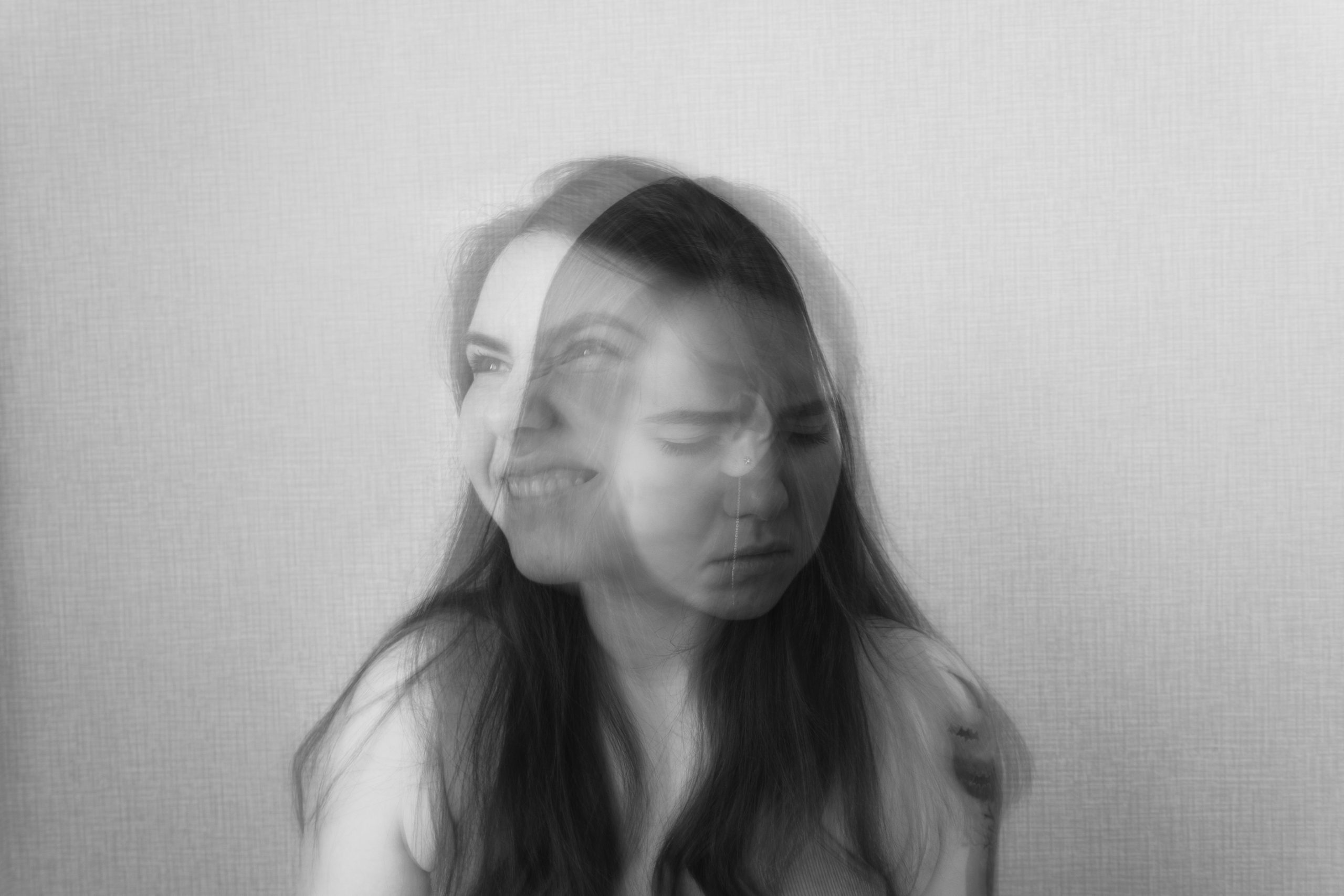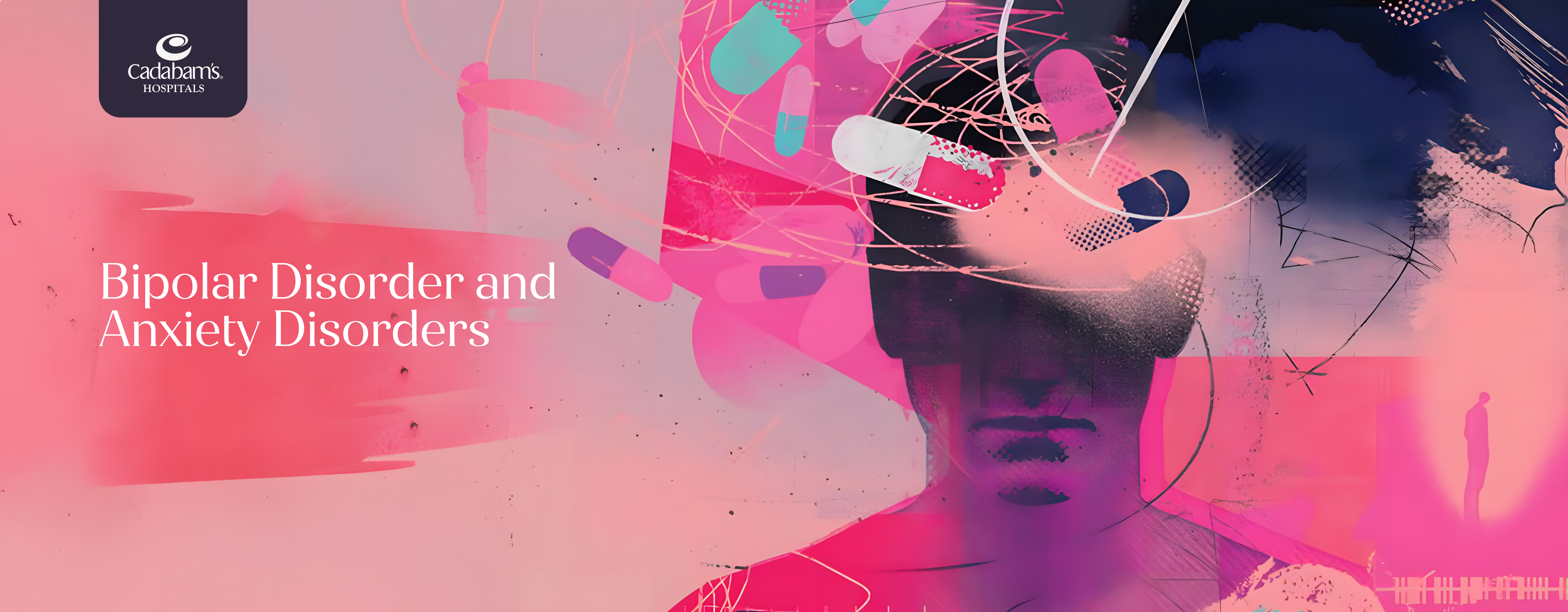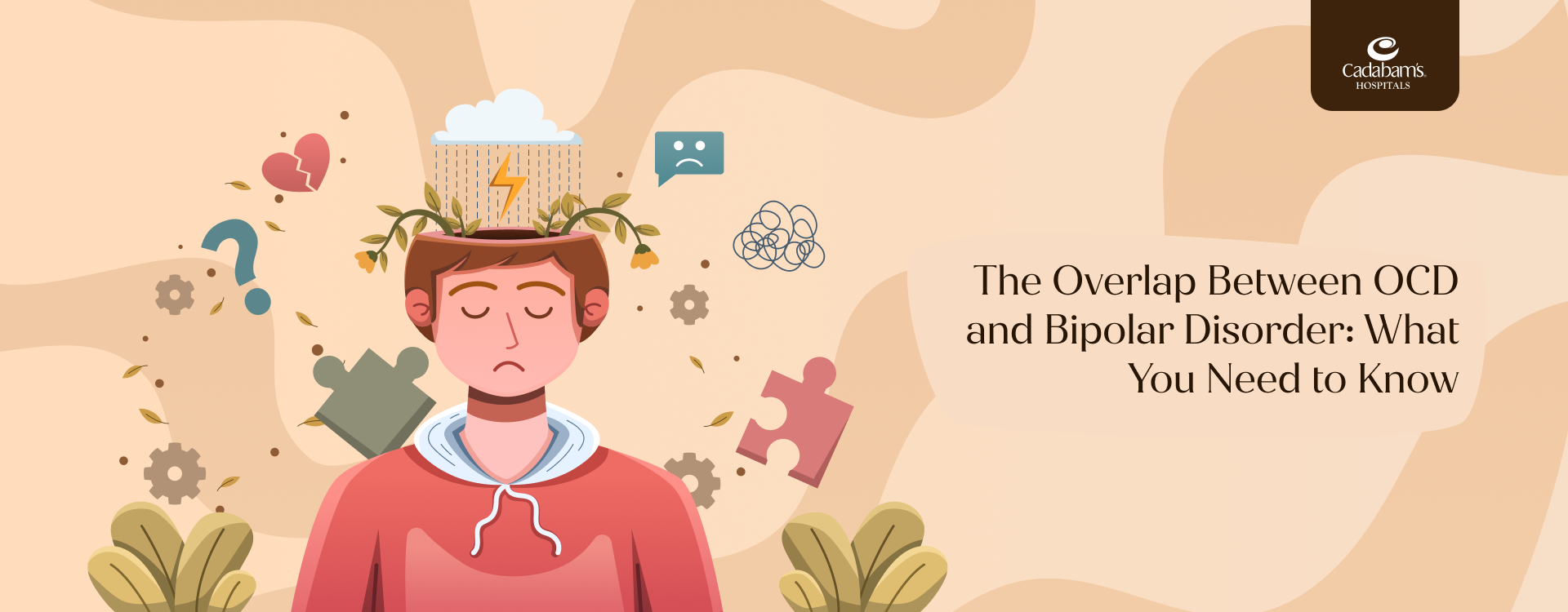Why is a rehab treatment center for bipolar disorder in Hyderabad important?
There are various advantages to choosing treatment in a rehabilitation setting over treatment on an outpatient basis or home care services, such as – Holistic approach to treatment.
Rehabs offer treatments from different professionals, including psychiatrists, physicians, physiotherapists, psychologists, and family therapists, in order to ensure effective management of the symptoms of the disorder.
Why does one need a rehab center in Hyderabad for bipolar disorder treatment?
Bipolar disorder is a severe mental health condition that can cause distressing symptoms, and sometimes it can be challenging to manage daily activities, such as personal hygiene and social interactions.
If you or someone you love is facing similar difficulties, it’s crucial to seek help from a mental health professional. You may need to consider visiting a rehabilitation center in Hyderabad to get the appropriate treatment and support to improve your quality of life.
Constant monitoring: There is full-day monitoring offered by trained staff to ensure daily medication intake, regular routines, and engagement in regular therapy appointments with the patient.
Round-the-clock support: Constant supervision allows for always ensuring the patient’s safety and awareness of the patient’s condition, symptoms, and progress so that any modification required in the treatment plan can be implemented.
Focus on psycho-education and relapse: While living in the rehab setting, the patient and the family members learn more about the disorder, strategies to manage its symptoms, and to reduce the rates of relapses.
Involvement of family: Bipolar disorder affects not just the individual affected but also their family members. Thus, family therapy is also offered in rehabilitation centers which helps resolve conflicts, improve relationships, and overall enhance the quality of life of all.
Promotion of lifestyle changes: Rehabs offer a structured routine that consists of healthy lifestyle changes such as yoga sessions, meditation practices, art and music therapy, and regular eating and sleeping schedules, which enhance mood stability for bipolar patients.
Building a strong support system Rehabilitation settings help create a solid network of support systems for many individuals who find themselves suffering from the same disorder, thus reducing a sense of isolation and promoting hope for recovery.
When should you ask for help?
It can be challenging for an individual with bipolar disorder to recognize when they require assistance. However, it’s crucial to understand that seeking help from mental health professionals is essential when feelings of sadness persist for an extended period.
If you or someone you know is experiencing thoughts of suicide or self-harm, it’s crucial to seek emergency help immediately.
What type of doctors or specialists in Hyderabad can help with bipolar disorder treatment?
Our team at Cadabams consists of a diverse group of professionals who specialize in recovery and rehabilitation. Our team includes highly trained psychiatrists who can prescribe medication for bipolar disorder. They also help in the diagnosis of the disorder and managing the symptoms associated with it.
We also have a team of experienced clinical psychologists who use therapeutic approaches to help a person develop coping mechanisms against the disorder, allowing them to return to normal functioning.
Our therapists and counselors also work with the rest of the team to help individuals manage Bipolar Disorder. This results in a more comprehensive recovery experience and reduces the chances of a relapse.
What type of therapy or treatment programs are available for bipolar disorder in Hyderabad?
Psychiatrists typically prescribe medication to assist individuals in managing the symptoms of bipolar disorder. Moreover, there are various psychotherapy approaches, such as CBT, group therapy, family therapy, and more, that can help people develop resilience toward the disorder and promote recovery.
Things you should check before selecting a bipolar disorder rehab center for treatment in Hyderabad
Before selecting a rehabilitation center for recovery from bipolar disorder in Hyderabad, there are several considerations to take into account. Some of them include:
- Available living facilities
- Medical infrastructure of the rehabilitation center
- Treating team involved in the recovery process
- Recovery programs offered by the center
- Availability of psychotherapy and medication management for Bipolar Disorder treatment
One of the first steps that individuals or families can take is to communicate with the team at the center and explore the range of treatment programs available to address the disorder.
Why Cadabams Rehab Centers in Hyderabad?
As a prominent name in mental healthcare, Cadabams has been providing diagnostic and treatment services for various mental illnesses for over 30 years. We offer a comprehensive solution for all aspects of recovery.
Our rehabilitation center in Hyderabad for bipolar disorder is equipped with cutting-edge technology, advanced treatment approaches, and a team of experts.
What sets us apart is that we provide both short-term and long-term rehabilitation programs that aim to facilitate the healing process. Additionally, our multidisciplinary team can significantly aid in adopting a comprehensive and holistic approach to recovery.
What are the benefits of a rehabilitation center in Hyderabad for bipolar disorder?
Rehabilitation centers offer individuals a safe environment where they can concentrate solely on their recovery without any other concerns. At these centers, patients receive ongoing medical supervision and have their daily needs taken care of.
At Cadabams Hyderabad, individuals, after an initial consultation with a psychiatrist, will be able to choose a treatment program that they are comfortable with. Post that they will have an insightful session with a psychologist where they will be taken through the nature of Bipolar Disorder and the recovery journey they can expect.
How effective is rehabilitation for bipolar disorder?
Rehabilitation could be the most effective treatment approach for individuals experiencing moderate-to-severe bipolar disorder symptoms.
This treatment emphasizes long-term and comprehensive recovery by assisting individuals in developing coping strategies to manage the various symptoms of the disorder.
FAQ
How does the rehabilitation treatment for bipolar disorder work?
Rehabilitation concentrates on controlling symptoms and guiding individuals in coping with the disorder. Additionally, it plays a crucial role in assisting individuals in regaining their daily routine functioning and managing the pressures that come with everyday societal life.
Which is the best therapy for bipolar disorder?
Numerous therapeutic techniques have shown effectiveness in treating bipolar disorder, but cognitive behavioral therapy (CBT) is generally considered highly effective. By identifying negative and irrational thought patterns, CBT aids individuals in replacing them with more constructive ones, providing valuable support for managing the disorder. Further, therapies like group therapy, family therapy, REBT, and Dialectical Behavioral Therapy (DBT) help an individual in recovery.
Is bipolar disorder curable?
As a chronic mental health condition, bipolar disorder cannot be entirely cured. However, it can be effectively managed through timely diagnosis and treatment by a trained mental health specialist.
What is the average cost of bipolar treatment in Hyderabad?
The expenses associated with treating bipolar disorder in Hyderabad can vary depending on the nature and severity of the condition. To determine the best course of action and better understand the costs involved, speaking with our team can be beneficial. You can contact our 24/7 helpline at +91 97414 76476.
How to live with a bipolar person?
Individuals who have a loved one dealing with bipolar disorder can assist them in leading a fulfilling life. Some tips that may be helpful in this process include gaining knowledge about the condition, supporting them during their recovery, encouraging them to maintain consistency with their treatment plan, and setting clear boundaries for both you and your loved one.
Should I be hospitalized for bipolar disorder?
If an individual is experiencing thoughts of self-harm or suicide, it is crucial to seek prompt help from a mental health provider. The provider may advise hospitalization or rehabilitation, depending on the severity of the situation. If you are facing an emergency, our 24/7 helpline at +91 97414 76476 is always available, where our trained mental health professionals can assist you.














 Available
Available


















